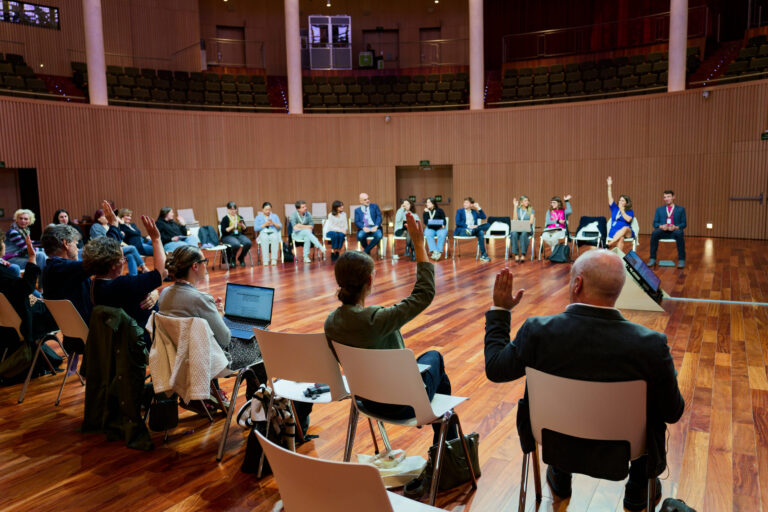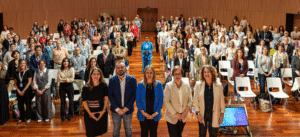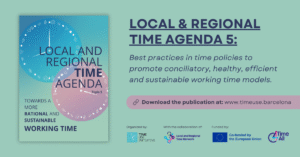- The Time4All project, funded by the European Commission’s CERV programme, has organised activities to exchange knowledge and create links between European local and regional authorities interested in implementing time policies.
- The project has promoted the recognition of the Local and Regional Governments Time Network as the key stakeholder in advancing towards time policies at the local level in Europe and worldwide.
- The initiative has promoted the adoption of time policies in towns and cities across Europe, aiming to create healthier, more equitable, and sustainable living environments
The Time4All project, part of the European Commission’s CERV programme —which awards projects that promote social equality and citizens’ rights— was developed between 2023 and 2024. It has successfully brought time policies to the forefront of urban planning and discussions on social equality across Europe.
To that end, regions, metropolitan areas, and cities have come together under the Local and Regional Governments Time Network, and have organised exchange activities that reshaped how we think about our time use, and how we can change it through time policies. As European cities lead the way in implementing these innovative policies, the project’s impact is set to reshape urban life and social equality across the continent.

The expected short-term impacts of the project were:
- Encouraging and expanding cooperation between municipalities and exchanging best practices in time policies.
- Raising citizen awareness about the benefits of healthier and more equitable use of time through the project’s exchange activities.
- Increasing visibility and knowledge of successful local time policies across the EU.
The project’s evaluation has been positive by everyone involved, with the three impacts successfully achieved, and all planned activities being developed. The award of the new project Time4All 2.0, which builds on the achievements of Time4All 1.0, is proof of its success.
Knowledge creation and exchange
One of the project’s goals was to create structured knowledge around the right to time and time policies at the local level and exchange it amongst the participants and key stakeholders. A key element in promoting this cooperation has been the discussion and publication of the Local and Regional Agenda, which provided participants with real-life inspiration for implementing public policies
To that end, the project successfully published four Local and Regional Time Agenda chapters on Work-life balance, Time and mobility, Time and democracy and Urban Nighttime policies, which compile over 70 good practices on time policies.
The Local and Regional Agenda has been pivotal in articulating the narrative around key time policy issues. Its contents were further disseminated through other project events, including the Summer School of Time for citizens and public institutions.
The Summer School of Time for civil society, the first European training program on time policies, which took place online in June 2024 with more than 500 participants, showed time policies are an essential tool for addressing time discomfort (which includes time poverty) as well as the increasing interest of citizens and social organisations in time policies.
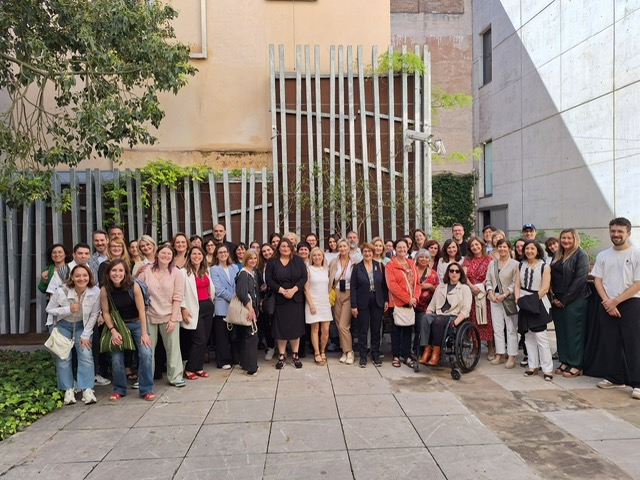
Additionally, the Summer School of Time for public institutions, which took place on-site in Barcelona, was a success. It offered participants hands-on training to apply directly to their municipalities and regions. Discussions focused on better governance of these policies, with potential scalability to other European local authorities.
Finally, an exchange event with LATAM countries provided a different perspective on time policies, allowing European countries to enhance their narrative while showcasing best practices implemented in Europe.
European cooperation among local authorities and time policies’ implementation
A second key element of the project was the creation of a strong network of local authorities that could implement time policies through the Local and Regional Governments Time Network. The trust and working environment for that to happen were fostered through activities such as the kick-off event and the Annual Assembly.
The Annual Local and Regional Time Network Assembly was held during both Time Use Week 2023 and 2024. It served as a key moment of the year for participants to connect, to reinforce their relationships, and to recap on the achievements, new time policies, and other critical issues addressed throughout the year, ensuring further collaborations.
Another key activity to foster cooperation and exchange was the World Capital of Time Policies, awarded to pioneering cities in Europe, namely Bolzano, Italy (2023), and Strasbourg, France (2024). These cities conducted activities to raise awareness among other local authorities about the importance and usefulness of implementing time policies. In Strasbourg, a European dimension was added, featuring activities within the European Parliament to discuss the needs and significance of time policies with members of the European Parliament and other European decision-makers.
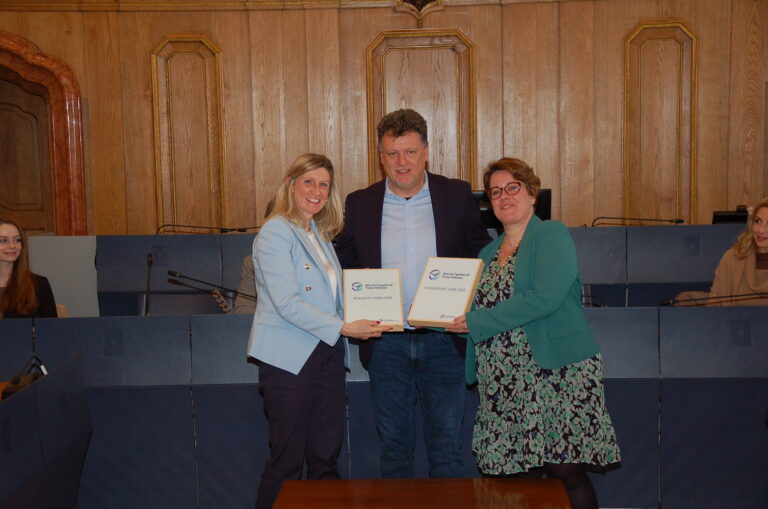
Civil society and citizens, key elements for time policies to succeed
Last but not least, engaging with key stakeholders at the civil society level and directly with citizens was a key element for the project, as it is understood that time policies require their collaboration to be truly successful. To that end, citizens and civil society organisations have been directly engaged through activities and conferences aimed at them. One significant event was the exchange with LATAM countries, which included key civil society organisations focused on issues of gender, proximity, and equality.
The Annual Local and Regional Time Network assembly was also open to citizens and civil society associations, allowing time for questions and input as part of the agenda. Organisers specifically invited organisations that were likely to be interested in the topics, such as ALDA and other associations working on participation and democracy.
The Local and Regional Governments Time Network takes the stage
The project’s success can also be measured by the degree to which the Network has been able to participate in key debates around public policy in Europe. In that regard, the following must be highlighted:
- The Barcelona Declaration on Time Policies has been renewed for 2025-2027, with support from over 200 global organisations. The new action plan is organised through working groups of different stakeholders, and the Network will lead the working group for local policies.
- The Local and Regional Governments Time Network has been recognised as a crucial stakeholder in advancing local, European, and global time policies, which led to invitations explaining time policies at key international events, such as the Brussels Urban Summit 2023 and the Smart City Expo World Congress in 2023 and 2024.
- The continuity of two major international events, the World Capital of Time Policies and Time Use Week, has been assured, establishing them as pivotal gatherings for time policy discussions.
- The Network has added or is in the process of adding 11 new members.
- The practical approach of many of the project’s activities has allowed the participants to start thinking about ways to implement time policies, therefore directly improving the lives of their citizens. As the Network is preparing to launch a new chapter of the Local and Regional Agenda for 2025, it has already identified new time policies developed during 2023 and 2024 both from partners of the Time4All project and from other cities not directly participating in the project.
Looking ahead
As Time4All moves forward, its influence continues to grow. Namely, new activities in 2025 and 2026 have been secured by being funded with the newest Time4All 2.0 project —thus ensuring continued expansion of its original goals.
Moreover, interest from Members of the European Parliament has led to the creation of an informal working group dedicated to the right to time. This shows the interest in framing time policies at the European level, with specific topics already being developed. On the agenda: ending daylight saving time, considering time poverty in Europe, and developing actions towards decent working time.
And, finally, in 2025 the World Capital of Time Policies is expanding beyond European borders, with Bogotá being the first Latin American city to be recognised with such an award. This will allow the city to further develop and gain momentum for its time policies, such as Care Blocks, and promote its vision of the right to time.



